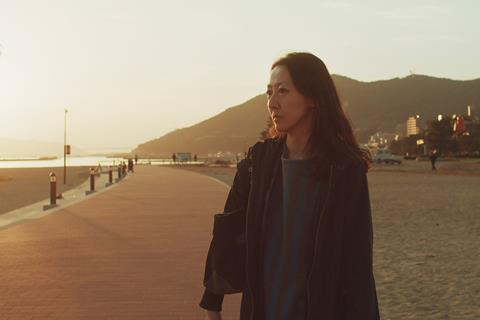
After a year in which it held a stripped-down, pandemic-influenced edition, Tokyo International Film Festival (TIFF, October 30-November 8) is back this year in a more conventional format, but with a totally new programming structure and management team.
TIFF chairman Hiroyasu Ando explains that these changes were not prompted by the pandemic, but introduced because it “felt necessary to revitalise various aspects of the festival”. Shozo Ichiyama, known internationally as a producer and head of the highly respected Tokyo Filmex film festival, joined TIFF as programming director earlier this year and has already instigated several changes.
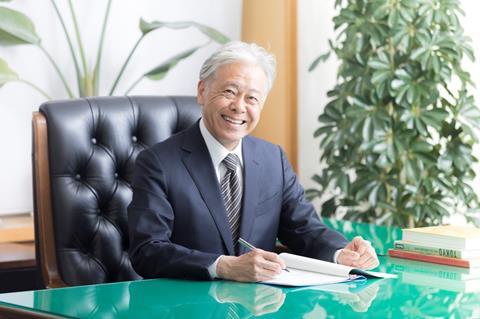
“Ichiyama has a keen eye for selecting films and extensive connections in the industry, both in Japan and internationally,” says Ando. “We’ve entrusted him with reorganising the sections and clarifying the selection policy for each of them.”
The festival also has a new home — changing venues from Roppongi, where it was held for 17 years, to the Ginza-Hibiya district, which Ando says “boasts a long history as the centre of cinema in Tokyo”, and has many movie theatres, hotels, restaurants and cultural facilities. It is also the home of Tokyo Filmex, now headed by Ichiyama’s former deputy Naoki Kamiya, which like last year will be held concurrently with TIFF.
One of Ichiyama’s first tasks was to refresh the International Competition section, which as it takes place after a string of major festivals, has in the past struggled to secure world premieres. According to Ichiyama, TIFF still doesn’t have a strict policy regarding world premieres, as the aim is simply to present a strong line-up, but he was surprised to find many quality Asian films available for a first screening this year. Among the 15 titles in competition, 10 are world premieres, including Brillante Mendoza’s Payback, Bahman Ghobadi’s The Four Walls, and Third Time Lucky from Happy Hour co-writer Tadashi Nohara.
“Many strong Asian films were available, probably because not so many were selected by the major festivals this year,” says Ichiyama. “As some big festivals didn’t take place last year due to the pandemic, there’s still a backlog of Hollywood and other films waiting for festival outings, so there’s not been as much room for Asian cinema. As a result, many Asian films will be premiered in Tokyo.”
Among the key changes Ichiyama has introduced, two sections that focus on up-and-coming filmmakers — Asian Future, programmed by Kenji Ishizaka, and Japanese Cinema Splash — have been combined into one section. “After speaking with Ishizaka, we agreed that good Japanese films from new filmmakers should compete with young filmmakers from the rest of Asia,” Ichiyama explains. While non-Japanese films in Asian Future only need to have international premiere status, this year’s line-up features 10 world premieres, including two from Japan.

Meanwhile, the Japan Now section, a panorama of recent Japanese cinema, has been renamed Nippon Cinema Now with a renewed focus on bringing more diverse local films to world audiences. The line-up includes a combination of world premieres and Japanese films shown in other Asian festivals, such as Naoko Ogigami’s Riverside Mukolitta which played in Busan. It also features Keisuke Yoshida as Director in Focus, and screenings of his features will include Intolerance and Blue.
“European premieres are still available for many of these films, so we’re hoping to introduce them to festivals like Berlin or Rotterdam,” Ichiyama says. Likewise, the eight films in TIFF’s World Focus section, including recent Venice winner Il Buco, are mostly without local distributors, so the festival is hoping to catch the eye of Japanese buyers.
Jostling for position
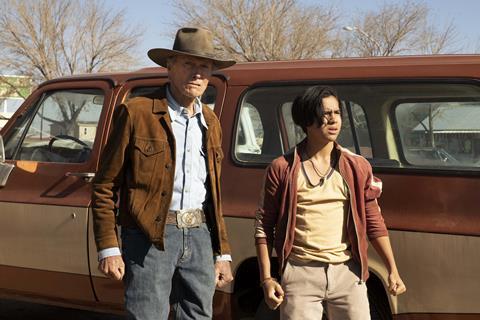
While in recent years TIFF has leaned towards Japanese films opening and closing the festival, this year it will open with Clint Eastwood’s Cry Macho and close with Stephen Chbosky’s musical Dear Evan Hansen.
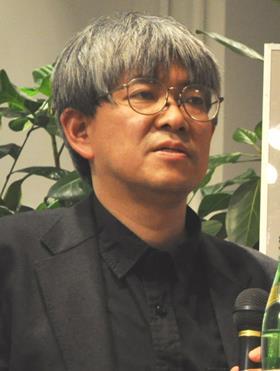
Ichiyama says it’s just coincidence that two US studio films were chosen, although it also reflects how many North American films are jostling for festival slots. Two other high-profile films by US filmmakers, Michael Showalter’s The Eyes Of Tammy Faye and Wes Anderson’s The French Dispatch, will screen in the Gala section. Further TIFF sections include Japanese Animation, which focuses on late animator Yasuo Otsuka and the Kamen Rider series, Japanese Classics, the Youth section and TIFF Series, which will screen two episodes from HBO Asia’s Folklore 2 anthology.
Inevitably, the pandemic is still having an impact on the festival. At the time of writing, TIFF was planning more than 100 physical screenings in various venues, with strict safety measures in place. Tokyo cinemas can currently operate at 100% capacity but with mandatory mask-wearing and temperature checks. The festival’s overseas guests will be limited to a handful of filmmakers and industry figures, including jury president Isabelle Huppert and fellow juror, Malaysian producer Lorna Tee.
TIFF is also hosting several online events, including the Asia Lounge Conversation Series (although some sessions will be held physically and live-streamed), a series of seminars about Japanese animation and some online Q&As following film screenings. The World Cinema Conference, featuring speakers such as Cannes deputy general delegate Christian Jeune and Berlinale artistic director Carlo Chatrian, will be held physically and also live-streamed. The second edition of Asia Lounge, organised with input from Japanese filmmaker Hirokazu Kore-eda, will feature speakers such as Huppert, Mendoza, Ghobadi, Apichatpong Weerasethakul, Ryusuke Hamaguchi and Indonesian filmmaker Kamila Andini.
Spotlight: TIFFCOM
Pitching activities will be a prime focus at this year’s Tokyo contents market
Held online for the second time this year, TIFFCOM (November 1-3) is taking full advantage of the virtual format to expand its global reach. “Until now, physical screenings and seminars could only be attended at fixed dates and times under the capacity limits of the venues. Going online has given huge flexibility to both organisers and viewers,” says TIFFCOM CEO Yasushi Shiina.
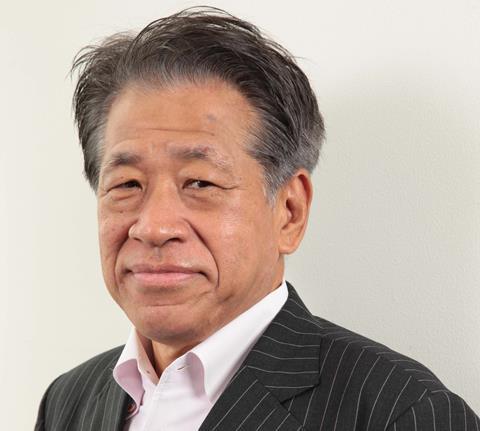
He adds that the virtual format also reduces the pressure of direct scheduling clashes — this year TIFFCOM takes place at the same time as the American Film Market (AFM, November 1-5). “Actually, this year our overseas buyer registrations have increased significantly, exceeding last year’s numbers even before the registration deadline. As both markets are online, it allows some AFM participants to take part in TIFFCOM too.”
Similar to last year, TIFFCOM will offer virtual booths, online business matching, online screenings and a series of webinars. Last year’s virtual TIFFCOM attracted 250 exhibitors from 28 countries and regions, along with 467 buyers, of which 129 were from Japan and 224 from the rest of Asia. One big draw was the expansion of its pitching activities to three separate events, all of which will be held again this year — the Tokyo Gap Financing Market (TGFM), VIPO’s Japanese Movie & Animation Pitching (JMAP) and the MPA/DHU/TIFFCOM masterclass and pitching competition.
TGFM, which focuses on projects looking for the last piece of financing, has selected 20 projects, including 14 live-action features, three animated features and three TV series. The line-up includes Elise Girard’s Sidonie In Japan and Today…Tomorrow… from Hong Kong director Ray Yeung (Suk Suk). Last year’s selection included Edwin’s Vengeance Is Mine, All Others Pay Cash, which won Locarno’s Golden Leopard and will screen in TIFF’s World Focus section.
JMAP will present four live-action and four animation projects from Japan, which are searching for international partners, while the MPA/DHU/TIFFCOM event features a masterclass with producer Emile Sherman (The King’s Speech) and offers new filmmakers the chance to win trips to meet industry figures in Australia and Los Angeles.
TIFFCOM’s webinar line-up includes ‘Netflix: from Asia to the world’, where Netflix Japan executives Kaata Sakamoto and Michael Smith will look at how series such as Squid Game and Alice In Borderland have broken out internationally. Other sessions include panels and content showcases dedicated to Japanese anime, Japanese broadcasters, Korean TV content and an introduction to the short documentary showcase Tokyo Docs 2021, which is taking place online November 1-15.






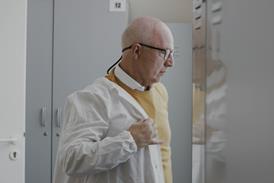


















No comments yet